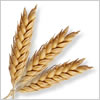Bedrijfsnieuws

 UK: Harvest of winter barley 99% complete as of August 10
UK: Harvest of winter barley 99% complete as of August 10
UK’s harvest of winter barley is 99% complete – with approximately 14 thousand ha harvested in the last week. As of 07/08 there remained small areas left to harvest in Scotland (93% harvested), as well as occasional fields in Yorkshire and Wales, AHDB reported on August 10.
This puts harvest progress just ahead of that achieved at the same point in time in any of the last five years. The early harvest of 2014 saw 95% of the winter barley area harvested by the end of week 5 (WE 07/08) and 91% in 2017. In the later harvests of 2015 and 2016 between 50-60% of the GB area had been harvested by this stage in August.
The current GB yield estimate for winter barley is 6.8-7.0t/ha (adjusted to 14.5% moisture) which is in line with the GB five year average of 6.9t/ha. Regional average yields currently range from 5.6-7.5t/ha, although there is a great deal of variability within and between farms.
Yields in southern and eastern England, Scotland and Wales are tending to be close to historical averages, with the best yields occurring on heavier land, due to better moisture retention. Here yields of 8.0 t/ha are common on conventional varieties and 9.0t/ha on hybrid varieties, rising to 11.0t/ha for the best crops. In these regions, some areas of light land have delivered yields of about 6.0t/ha, as most of the yield building had already occurred by the time drought set in.
In the Midlands, northern and western England yields are tending to be slightly below the farm average, especially on lighter land crops, where yields as low as 4.9t/ha have been reported.
The majority of malting varieties are meeting specification, and quality overall is good. There have been reports of pink straw seen in stubble in many regions during this harvest – most recently in Scotland - where crops have been particularly affected by drought.
Specific weight – averaging 65kg/hl (regional range 61-68kg/hl). Specific weights have been variable this year, with reports of low specific weights occurring on farms with very light land (especially in the Eastern region), on the heavier land specific weights are better, but they still tend to be slightly below normal for the farm. There have been occasional reports of specific weights up to 70kg/hl.
Grain nitrogen (malting varieties) – average 1.6%, regional range from 1.4-1.8%. Grain nitrogen levels tend to be lower in the north (1.4-1.5%) and higher in the south 1.6-1.8%.
Screenings – typical reports are around 2%-10%. Screening levels are within tolerance, although concerns over potential quality issues in spring barley have meant some merchants are adjusting their tolerances to make the most of the winter barley crop that is available.
Moisture – typical moisture content 14.0%, but ranging from 12% in the south to 16% in Scotland, minimal drying required, except to manage very small areas of grain from tramlines or very sheltered areas. Drying has been necessary in Scotland, due to wetter conditions than the rest of GB.
Germination – typically around 98%.
Spring barley harvest started in earnest over the last week with just under 20% of the national area harvested to date. There were just under 119Kha harvested during WE 07/08.
Compared to previous years, 2018 harvest progress is currently slightly behind this point in 2014, although ahead of other harvests over the last 5 years. Spring barley was planted in two main planting windows in 2018, which means that spring barley crops vary greatly in their maturity, meaning that not all crops will be ready for an early harvest.
As of WE 07/08, just under 40% of the spring barley area had been harvested in the South West and Eastern region. Good progress had also been made in the South East and West Midlands, with just under 35% harvested. A start to harvest was also made in Yorkshire, the East Midlands and parts of the North West. The main harvest has yet to start in Wales, Scotland and the North East, with just the occasional field cut there.
Initial yields are based on early harvested (and therefore often early planted) crops from southern and central England, and will therefore be subject to change as the later planted and more northern crops ripen for harvest.
In the South East and South West yields have been close to average, whilst in the Eastern region yields are about 5% down. Early harvested crops from the Midlands have also shown slightly below average yields. The current yield estimate for spring barley based predominantly on these locations is 5.3-5.7t/ha, compared to a GB 5 year average yield of 5.8 t/ha.
Only limited quality data is available at this stage in harvest for spring barley, and again this data comes mostly from the south and east, but overall early indications are good, although grain nitrogen levels are a little on the high side.
Specific weight – averaging 65 kg/hl (regional range 60-67 kg/hl).
Grain nitrogen (malting varieties) – average 1.7%, regional range from 1.5-1.8%. Reports of considerable variation within regions.
Screenings – typical reports are around 2%-10%, although there have been odd reports of screenings of up to 20%.
Moisture – average 14.0% - minimal drying required.
Germination – insufficient data at this point.
Back
E-malt.com, the global information source for the brewing and malting industry professionals. The bi-weekly E-malt.com Newsletters feature latest industry news, statistics in graphs and tables, world barley and malt prices, and other relevant information. Click here to get full access to E-malt.com. If you are a Castle Malting client, you can get free access to E-malt.com website and publications. Contact us for more information at marketing@castlemalting.com .





